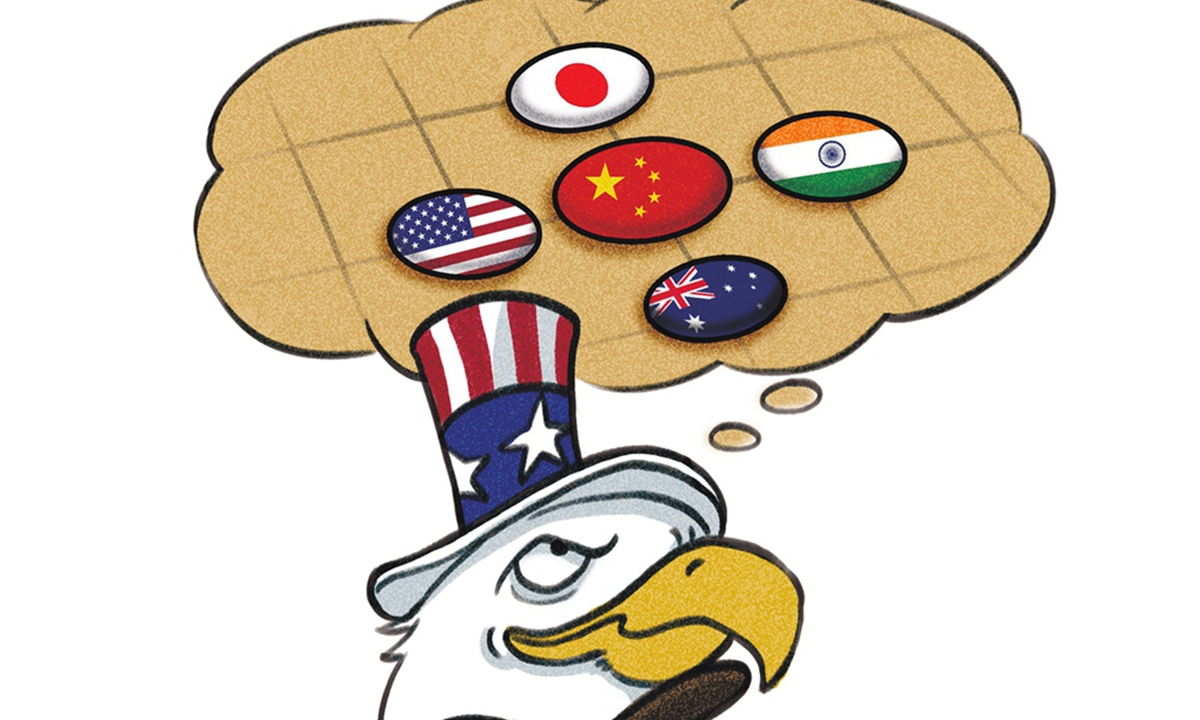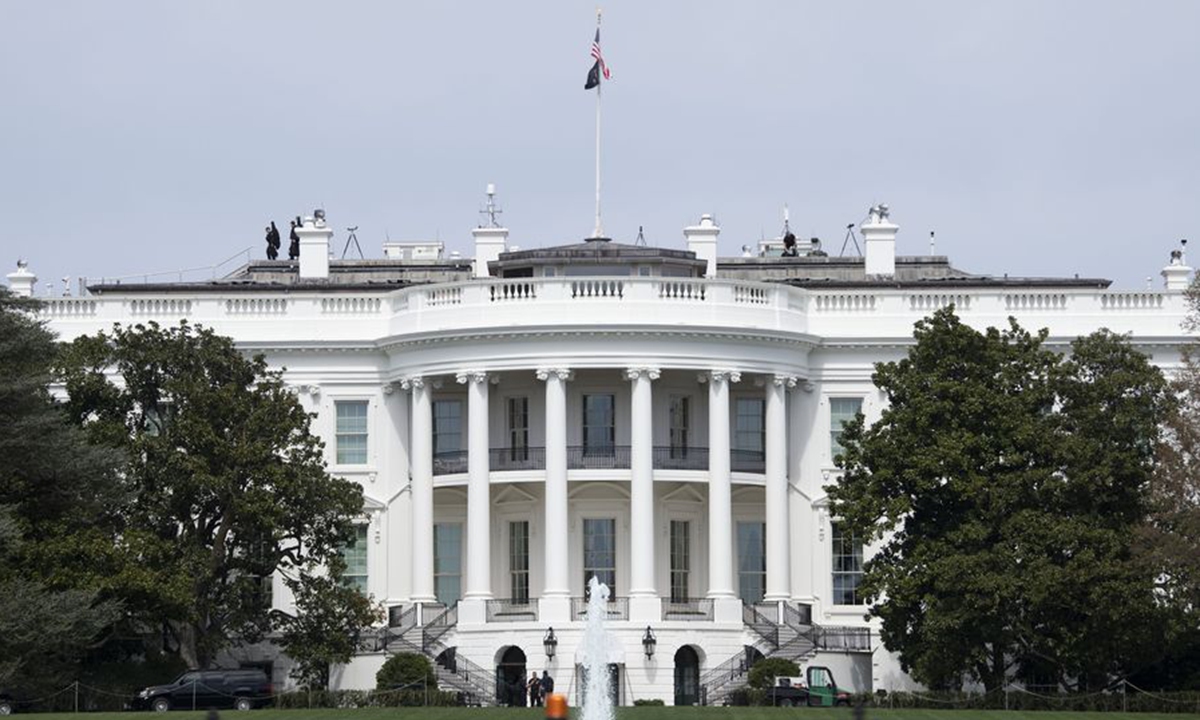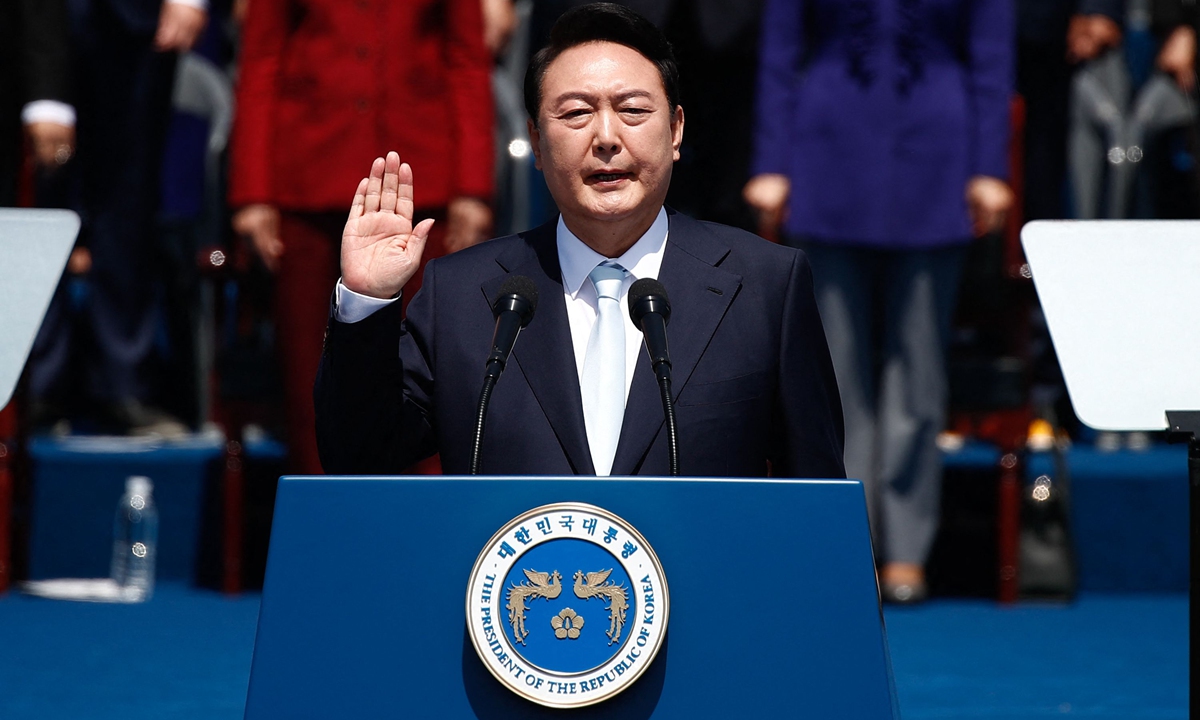.jpeg)
llustration: Chen Xia/Global Times
US President Joe Biden announced on Monday that its Indo-Pacific Economic Framework (IPEF) will start with 12 founding members - Australia, Brunei, India, Indonesia, Japan, South Korea, Malaysia, New Zealand, the Philippines, Singapore, Thailand, and Vietnam.
The White House touted that those countries account for about 40 percent of the world's GDP, but the high-profile launch doesn't obscure the fact that the US economic scheme, which reportedly covers supply chains, digital trade, clean energy, and anticorruption efforts, lacks specific content.
The US might be able to attract some economies to the IPEF with its seemingly ambitious pledges about digital economy and a new supply chain. However, when it comes to specific negotiations of rules, if the US cannot provide countries with practical benefits to really push for the establishment of a win-win mechanism, the IPEF will not lead to any concrete results.
It is no secret that the IPEF will be used by the US as an important geopolitical tool to contain China in the Asia-Pacific region, but the participation of the other 12 founding countries doesn't necessarily mean they will be all sided with the US in "decoupling" from China. To a certain extent, their participation in the IPEF is largely because they want to be engaged in the establishment of the new economic and trade mechanism from the beginning so as to have a greater say in the rule-setting for their own interests.
For instance, from the perspective of the seven ASEAN members, it is understandable that they hope to benefit from bigger market access, tariff elimination and other preferential trade policies through the new economic scheme, with the view of further promoting the development of their economies and industrial chains. But it is also important to note that most of the ASEAN members are at a different development stage from that of developed countries such as the US and Japan, resulting in a sharp division when it comes their respective requirements for standards in areas like digital economy, labor rights, market regulation, environmental protection, and anti-corruption. And it remains to be seen how the voices and interests of these developing countries can be assured during the detailed negotiations.
In this sense, the game between the US and the other 12 countries may have just started. US Secretary of Commerce Raimondo stated that the IPEF is to "make Indo-Pacific countries beyond China more attractive as manufacturing hubs," according to the South China Morning Post. But that raises a new question: since China is the largest trading partner for more than 120 countries, how can the US ensure the stability of the regional supply chain without China? Maybe that's not the intention of the US at all, because supply chain chaos may actually create new opportunities for the US to bring back manufacturing companies.
However, most of the Asia-Pacific countries see the US as their major export market and China as their major supply chain partner, so they want to see their cooperation with the US under the IPEF could increase their chances of exporting their manufactured goods to the US - and not necessarily trying to hurt trade with China.
From the US' perspective, since Donald Trump's administration, many in Washington blame multilateral free trade for US economic problems, including unemployment and a weakening manufacturing sector. With that protectionist sentiment continuing, the Biden administration is unlikely to give Asian countries more access to the US market.
In fact, if the US opens its market wider to Asian countries, its imports will increase, especially from China, because the Asia-Pacific supply chain is essentially intertwined closely with the Chinese industrial chain. Moreover, China is becoming a major export market for these Asia-Pacific countries, with even stronger demand compared with the US in some fields.
The bottom line is that the decline of American manufacturing has deprived the US of the ability to dominate the regional industrial chain to achieve its strategic goals. The IPEF can offer nothing to make Asia-Pacific countries compromise their massive economic ties with China just to appease Washington.
Source link
RELATED ARTICLES
US President Joe Biden is scheduled to visit South Korea and Japan from May 20 to 24. One ...
A week ahead of Joe Biden's Asia visit, the US President is hosting Southeast Asian leaders for a ...
Chinese Vice President Wang Qishan on Tuesday attended the inauguration of South Korean President Yoon Suk-yeol, reflecting China's ...
The Quad plays insidious tricks: Global Times editorial
Washington has launched quite a few “strategies” and “dialogues” in recent years. But most of them either went nowhere during the
partisan changes, or the US withdrew and gave them up. The reason is that it always wants to fool other countries to be “cannon fodder” of
its hegemony. At the same time, it tried to wrangle with the trend of the time but that efforts always ended in vain.



.jpeg)




 Geneva: The World Health Organisation gave the green light to Chinese manufacturer CanSinoBIO’s Covid-19 vaccine – the ninth jab to get the WHO seal of approval.
Geneva: The World Health Organisation gave the green light to Chinese manufacturer CanSinoBIO’s Covid-19 vaccine – the ninth jab to get the WHO seal of approval.


